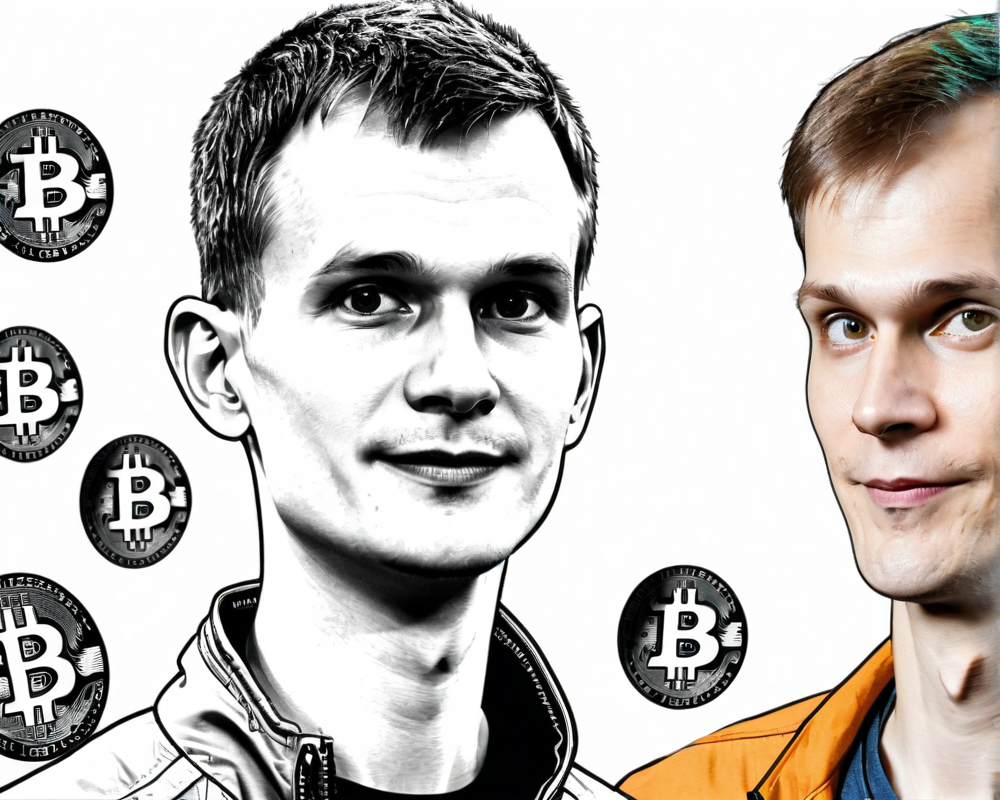Exploring Bitcoin’s Challenges: Vitalik Buterin on Proof-of-Stake and the Future of Cryptocurrency
Vitalik Buterin Joins the Discussion
In a recent episode of Epicenter Bitcoin, we sat down with Vitalik Buterin, a name that resonates through the cryptosphere like a particularly catchy pop song. With his extensive knowledge and knack for making complex concepts digestible, we dove straight into critical issues facing Bitcoin today.
The Energy Hog: Proof-of-Work
Let’s talk about proof-of-work (PoW) for a second, shall we? This is the heavyweight champion of the mining world, but boy does it carry a hefty energy bill. Vitalik points out, “We’re paying $600 million a year on a 5-of-10 multisig.” This statement isn’t just shocking—it’s a wake-up call about how our beloved Bitcoin is secured at such an astronomical cost. Most of this money goes toward running and cooling the ASIC processors that keep the show going, effectively powering a system that, ironically, spends most of its energy on what Buterin calls ‘worthless computations.’
Decentralization: A Concept in Jeopardy
With mining becoming increasingly centralized, the idea of decentralization is slipping through our fingers faster than a wet bar of soap. With fewer mining pools controlling most of the power, we see a trend away from the decentralized ethos that Bitcoin champions. Vitalik’s concerns are spot on; a centralized system does not inspire confidence among us, the average crypto enthusiasts sitting on our couches, trying to grasp the new world order.
Why Proof-of-Stake? The Energy-Efficient Alternative
Here comes the knight in shining armor—proof-of-stake (PoS). Unlike PoW, PoS proposes that miners can’t simply overpower the system with expensive machinery. Instead, your stake in the currency determines your mining power. The more you hold, the bigger your chance to mint that coveted block. Imagine getting a shot at it without the relentless hum of your ASIC equipment driving you mad!
The ‘Nothing-to-Stake’ Problem
Sure, PoS sounds great, but it’s not without its wrinkles. Vitalik raises the ‘nothing-to-stake’ issue, where users could exploit forking opportunities. In simpler terms, one could potentially mine on separate chains at the same time—chaos! But fear not: Buterin presents a potential remedy called Slasher. If someone is caught double-dipping, their reward might just vanish into thin air, and a bounty gets dropped on the whistleblower. Seems fair, right?
Bitcoin as a Unit of Account? Good Luck with That!
During our chat, we couldn’t resist asking whether Bitcoin could be a stable unit of account. Vitalik’s blunt answer? Not likely. With its fixed supply, Bitcoin seems too volatile to price everyday goods without sending us all into a tailspin. It begs the question: could cryptocurrency benefit from some form of monetary policy? Before you clutch your pearls, remember we’re not talking about a centralized authority but rather a smart algorithm.
Vitalik’s Global Quest
As Vitalik reflects on his whirlwind year of world travel—11 countries and counting—he’s found the community fascinating and diverse. From the tech-savvy streets of Israel to meetups in Toronto, each location brought unique insights. At only 21, this young maverick is not ready to slow down. He imagines a future where crypto-economics becomes a daunting yet recognizable academic discipline.
What Lies Ahead for Epicenter Bitcoin
As the gears turn on Epicenter Bitcoin’s next episode, prepare for an unfiltered chat between co-hosts Brian and Sebastien. With no guests and no scripts, it promises to be an engaging reflection on the year that was and what to expect in 2015. Don’t miss out on the debrief—we’ll be sipping hot cocoa and pondering over the future of crypto in our cozy corner of the universe.




